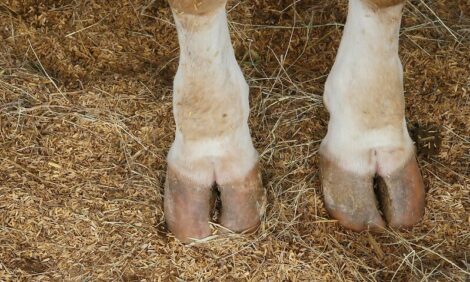



Reviving Native Cattle Breeds
INDIA - Integrated dairying plays an important role in ensuring food security and generating income for small farmers and agricultural labourers, and native cattle are a big part of this.“A farmer can earn a gross income of about Rs. 81,485 per year from maintaining just one native cow breed. The capital investment required for purchase and maintenance of an animal, insurance, and feed comes to Rs. 31,100 and a farmer can get a net surplus of about Rs. 50,385 in a year,” Dr K. Haranath Reddy, Deputy Director (AH), S.V. Gosamrakshana Shala, TTD, Tirupati told The Hindu.
Unscientific policies
Traditional, unscientific animal husbandry policies by the government, and factors such as fodder scarcity, grossly inadequate health cover, and over population of low yielders reduced the productivity of local breeds compared to that of their European counterparts, according to him.
Despite being a reservoir of vast genetic resources, farm animals still remain under developed in terms of genetic improvement and production.
It is a strange paradox that though India possesses a vast population of cattle they need to be scientifically exploited in an economic sense.
“Change in cropping system also contributed to the extinction of several local breeds.
“Decades back, our ancestors did farming in such a way that they could get grains for their consumption and crop residues for their animals,” says Dr Haranath.
But mono-cropping changed all this. High yielding, short duration varieties left no residues for cattle, and fodder shortage led to an increased sale of cattle during summer in cattle shandies.
“If you interact with small and marginal farmers, you can understand that the most pressing problems a farmer faces are fodder and water shortage. Next come fatal diseases and lack of timely veterinary attention.
“Even today many villages lack immediate veterinary care as government doctors are just not available.
“Though private doctors exist, their services are available only on payment and the grinding poverty in many of the farmers' households makes it impossible to afford a consulting fee, leave alone buying medicine,” explains Dr Haranath.
Today more than 90 per cent of small farmers do not maintain animals. In many places there are large tracts of land left fallow as bullocks are not affordable.
A false belief exists among a lot of people that local breeds are inferior, and need to be upgraded through cross breeding and artificial insemination (using frozen semen from hybrid bulls).
“While the animal husbandry department spends crores of rupees annually for breeding and insemination programmes, nothing is being spent to even make an attempt to understand or conduct pragmatic research on local breeds of cattle, towards poverty reduction,” he says.
While importance is being given to bigger and larger size crossbred cattle, what is being overlooked is that a bigger size naturally means more fodder and water along with more maintenance cost.
While in some parts of the country scientists are asking farmers to take up organic practices, this has not been possible because several farmers do not have cattle and hence cannot make their own manures, and manure is in great demand today.
Liberalisation by the Government in the 90's also struck a death knell to local breeds.
“Our farmers were made to face a sudden ‘invasion' of agriculture products at a highly subsidised rate against which they could not stand up and the result today is a rural economy in severe distress,” adds Dr Haranath.
Native cattles' urine contains rich colonies of desirable microbes for use in the rejuvenation of the fertility of soils as well as in veterinary and human medicines. Unlike cross-bred cattle, native breeds are resistant to infections.
With an investment of Rs.20,000 (cost of one animal), annual insurance of Rs. 700.00, Concentrate feed of (at Rs.10/- per kg) Rs. 9,900.00, Veterinary care for Rs. 500, (Total expenditure: Rs.31,100.00) a farmer can get a net income of Rs.56,000 in a year from selling milk, Rs. 9,000.00 (selling vermicompost), Rs.16,125.00 (from cow urine), Rs. 360.00 (selling empty gunny bags).


